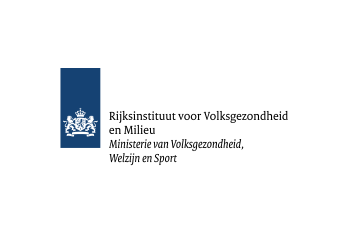To be clear, you are not obliged to tell anyone that you have HIV. That includes people at your school, the crèche or your work; or your general practitioner, sex partner, specialist or medical officer. Of course, it may be good to tell your doctor because any symptoms you end up getting might be HIV-related.
In brief
- You are not obliged to tell people that you have HIV.
- You cannot transmit HIV through normal daily contact.
- When the virus is suppressed, you cannot transmit HIV during sex either.
- There are various reasons for not telling people you have HIV.
All doctors (including company doctors) have a duty of doctor-patient confidentiality and are not allowed to tell others that you have HIV without your permission. If you are taking HIV medication and are prescribed drugs by another doctor, it is better to tell this doctor, because there may be interactions between HIV medicine and other drugs. If you absolutely don't want to do this, your pharmacy will check for these interactions anyway.
Telling about your HIV status is a personal choice
For many, the hardest part of living with HIV is not so much the condition itself or the treatment, but mainly the reactions of others. You don't know in advance how someone will react. Telling people about having HIV is a personal choice. Positive and supportive reactions are nice. But being afraid to get negative reactions is not strange. To give you a boost: once the virus is suppressed you can no longer transmit HIV.
Everyone deals with it differently. Research by the Hiv Vereniging (Dutch HIV Association) shows that four out of ten people with HIV have told all their family members, and one out of seven haven’t told any of them. A third has told all their friends, and one out of ten hasn’t told any of them. People are less open about HIV at work: half of them have not told a single colleague.
Mark: “You can't deal with something like that on your own. I wanted to share it with a few people I felt I could trust completely.”
To tell or not to tell?
For many people with HIV, it is a gradual process: over time, they tell more and more people. But sometimes people are initially very open about it and then, when starting a new job, no longer find the need to tell.
Your own consideration
Think about why you do or don't want to tell. What do you gain by it? Who do you tell about your HIV status? And when do you tell them? That can be different in each situation. Be aware: once you have told people, there's no going back. And you have no guarantee that they won't inform others.
Telling your partner or your sex partner
Do you tell them about your HIV, or do you keep quiet about it? When do you tell them? Everyone does it in their own way. There are no ready-made answers that are right for everyone. Telling may result in more stress than keeping it to yourself. And you could change your mind a year later.
It can be very difficult to tell your partner that you have HIV. You can ask your family doctor or an HIV nurse to help you with this. Click here to read how to come to terms with HIV in your relationship and in your sex life. It can be a problem with dating as well, maybe you can’t calculate how your date will react. And there is no ideal moment. If you tell them about your HIV on the first date they may not want to see you again. It may have turned out to be a one-off contact anyway, so why tell? On the other hand: if you keep on putting it off, telling them gets more and more complicated.
It's up to you to decide how open or how honest you want to be with your sex partners about your HIV status. It is perhaps good to know that – in contrast to many other countries – in the Dutch judicial system, you are never obliged to reveal your HIV status to sex partners. Not even if a condom rips, for example, or if you have unprotected sex. The responsibility for the risks associated with unprotected sex is always shared by both partners. If your viral load is undetectable, you cannot pass on HIV. Read more about it at U=U: undetectable = untransmittable (in Dutch, n=n). Click here to read more about informing your sex partners of your HIV diagnosis.
Telling them at work
Whether to reveal your HIV status at work is a personal decision. In any case, you are not obliged to say anything about your status. And if you do want to, what do you gain by it?
It is easier to choose whether to tell when you have no symptoms. It is more difficult when you do have symptoms; when you keep on calling in sick, and you would like to adjust the hours you work to the state of your health. In that case, the company doctor is the most appropriate person to consult. As a doctor, he is bound by doctor-patient confidentiality and that includes not telling your employer. But whatever you do, the decision is entirely up to you!
dealing with medication
Taking medicine is easy for most people. Nowadays it’s easier to take medicine discretely, without your colleagues noticing, for example. So this shouldn't be a reason to reveal anything about your HIV. You can talk to your doctor about what is the most convenient time of day for you to take it.
Telling at school or college
You do not have to tell them at school that you have HIV. HIV is not transmissible through normal daily contact. This includes messing about, playing together or sharing cups. But if HIV makes you feel comfortable, for example, it may be important to tell the school. Usually there is a counsellor you can share your story with.
If you want people to know, you can tell a few classmates, or perhaps the whole class. It's important to do what you feel comfortable with.
Telling healthcare workers
All doctors (including company doctors) have a duty of doctor-patient confidentiality and are not allowed to tell others that you have HIV without your permission. You are not obliged to tell anyone that you have HIV. Sometimes it can lead to better care if they know. For example, a dentist might keep a closer eye on your teeth.
If you are taking HIV medication and are prescribed drugs by another doctor, it is better to tell this doctor, because there may be interactions between HIV medicine and other drugs. If you don't want to tell this doctor, make sure your pharmacist checks this medication for interactions.









